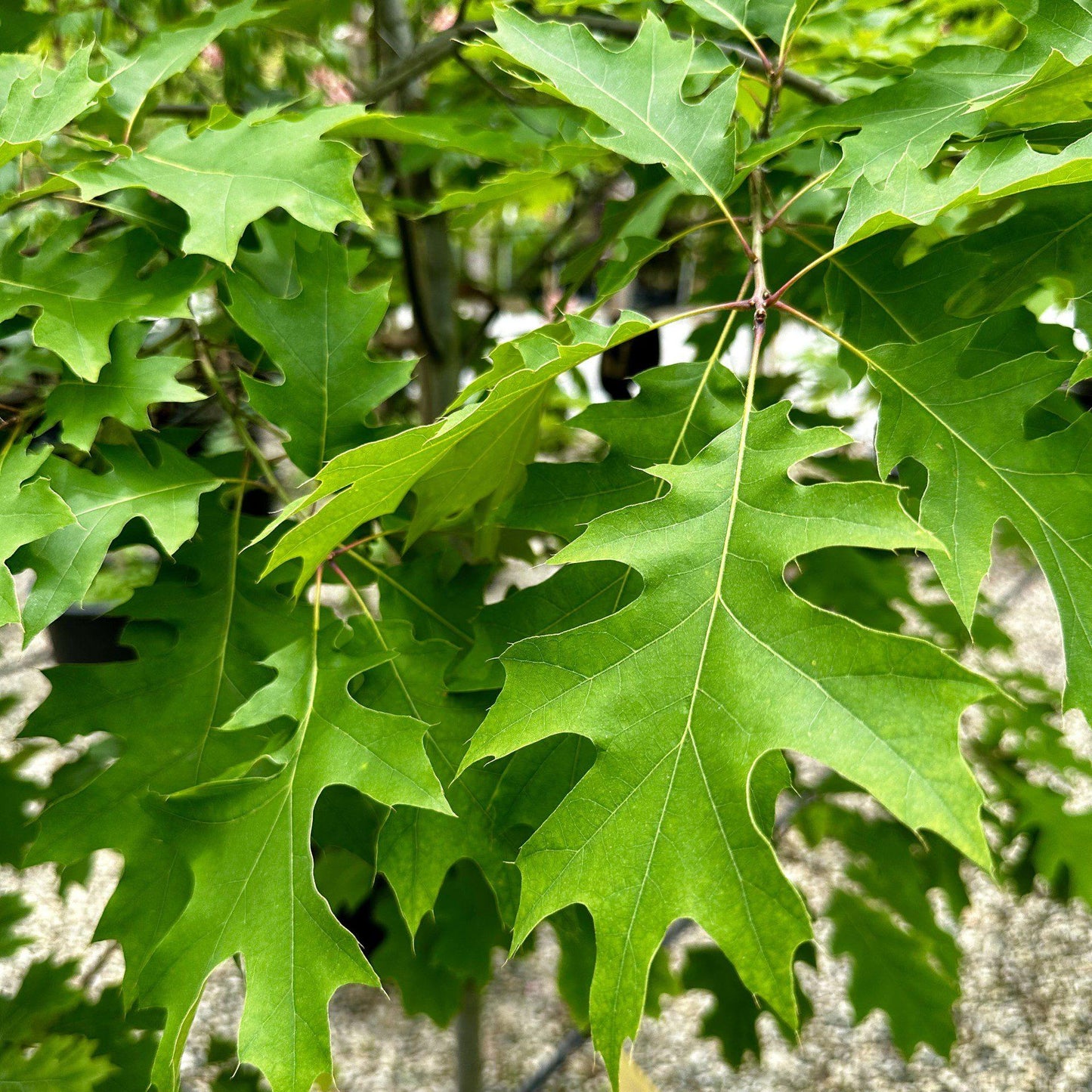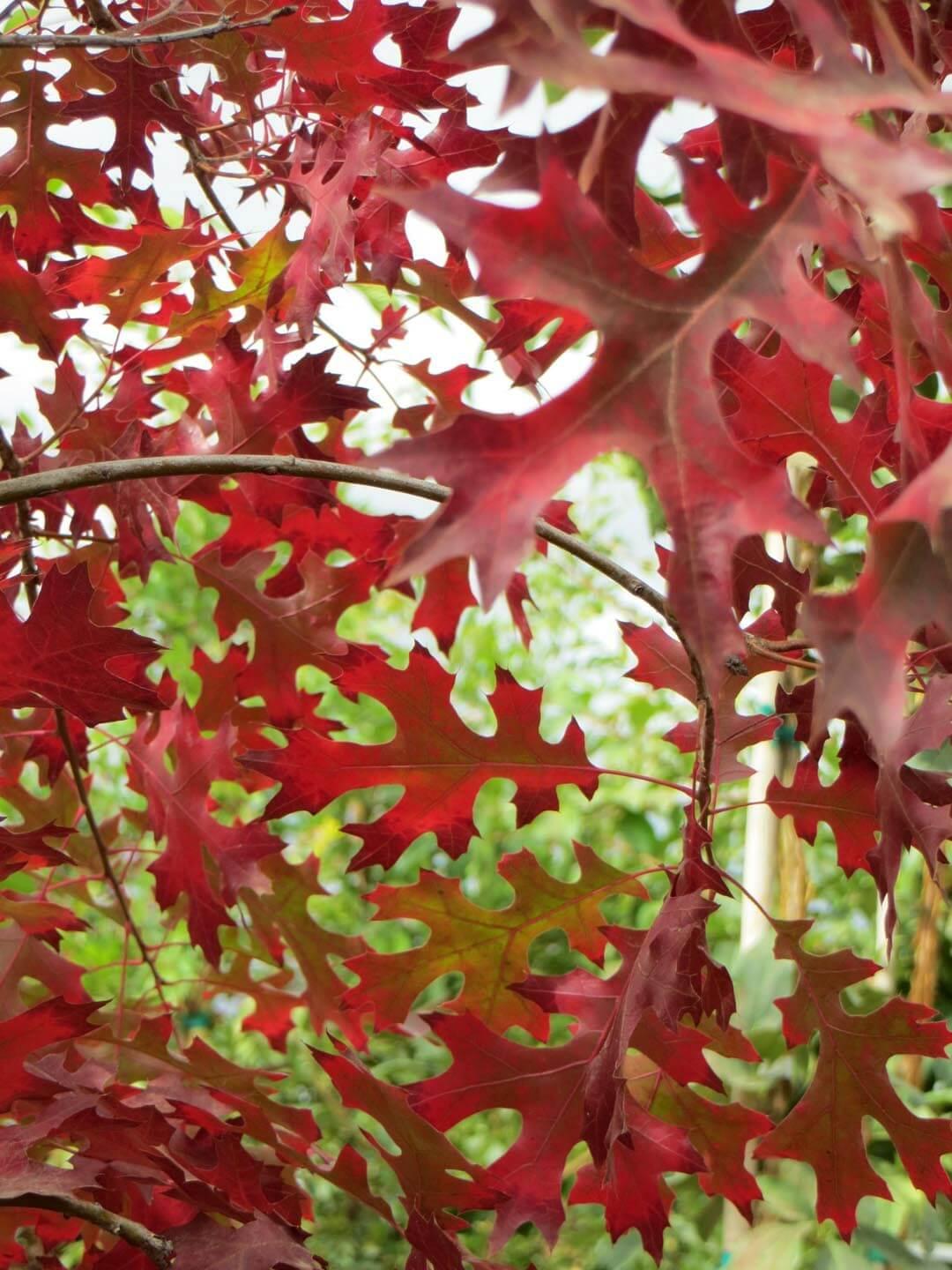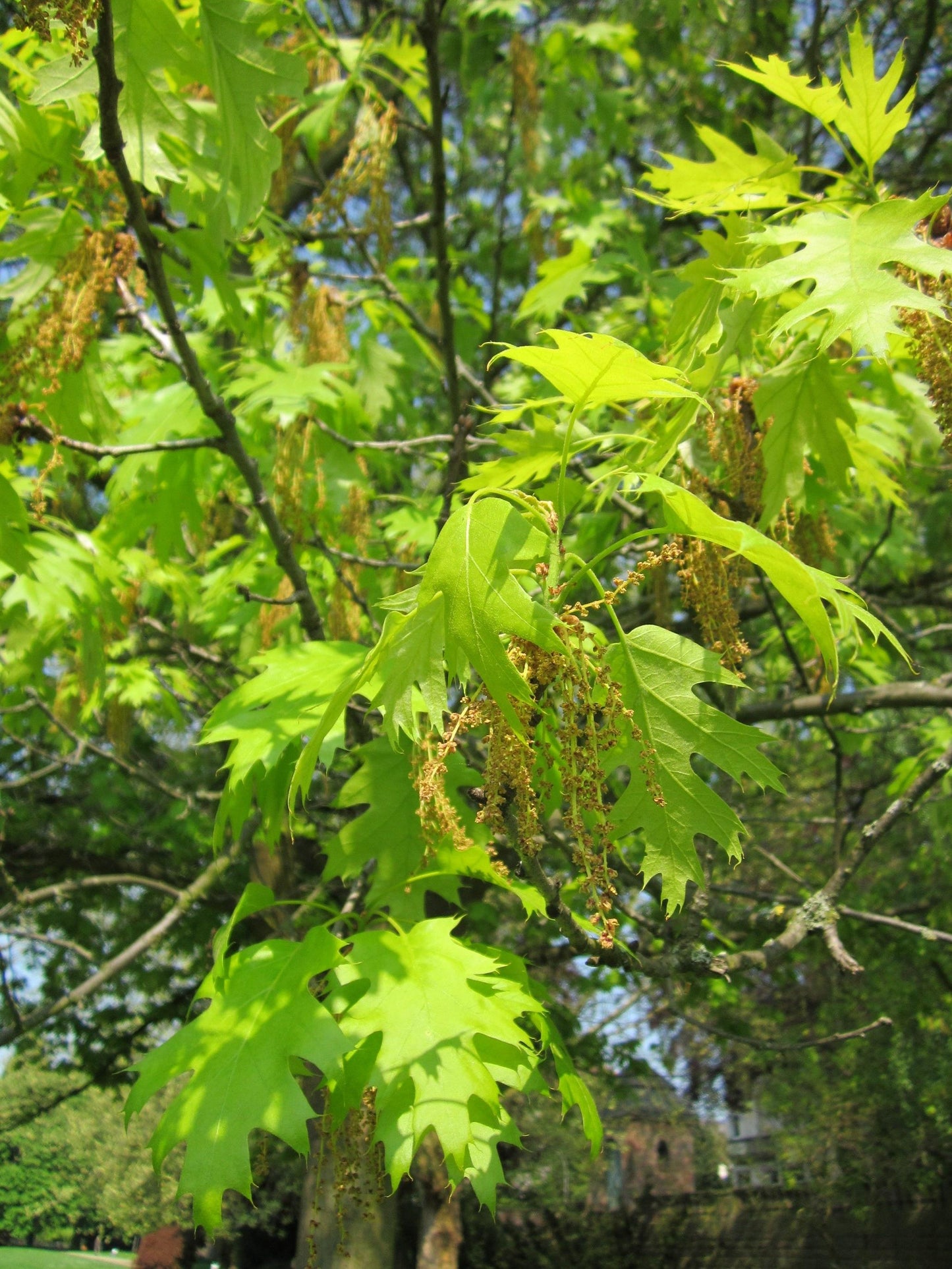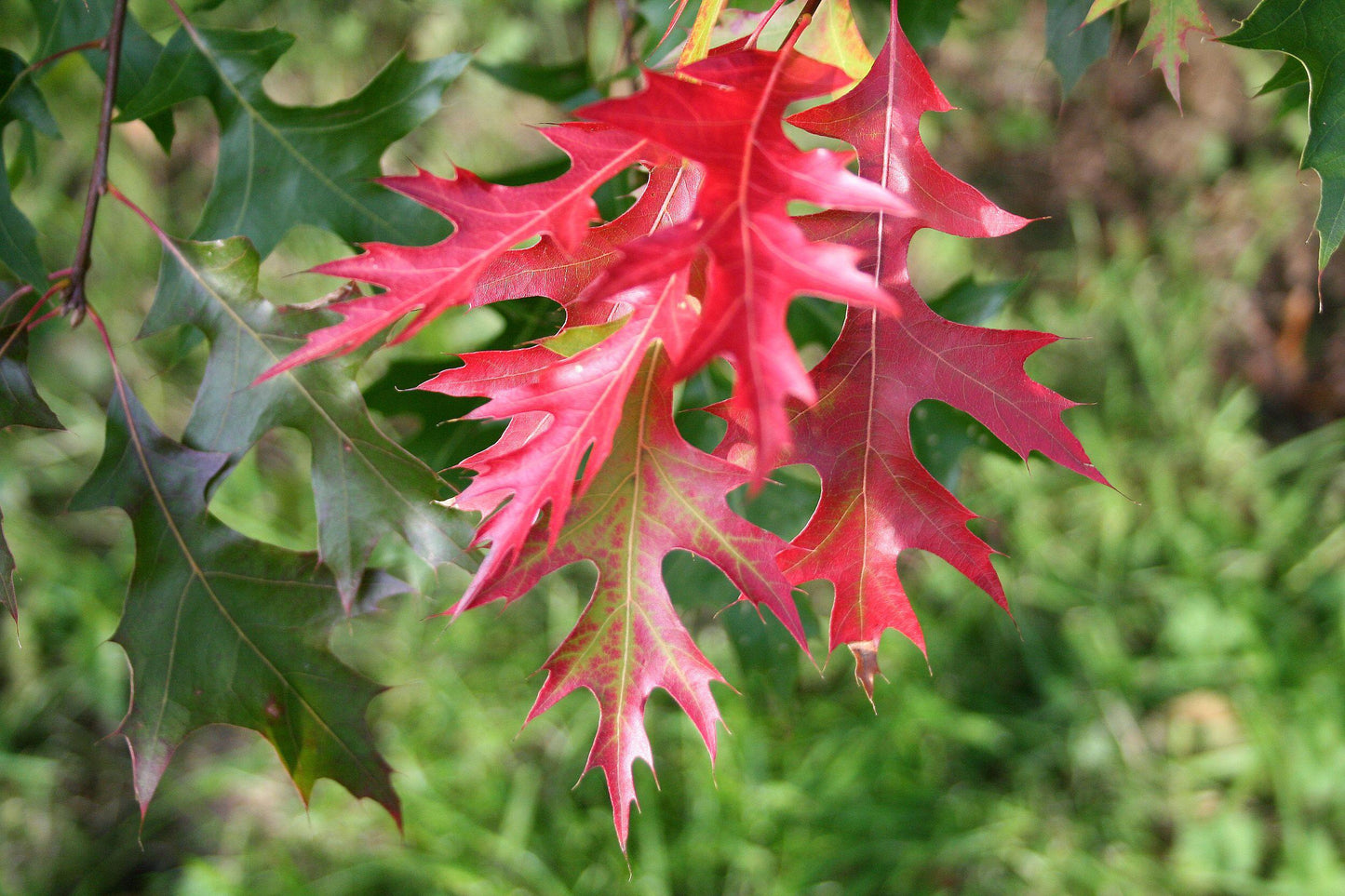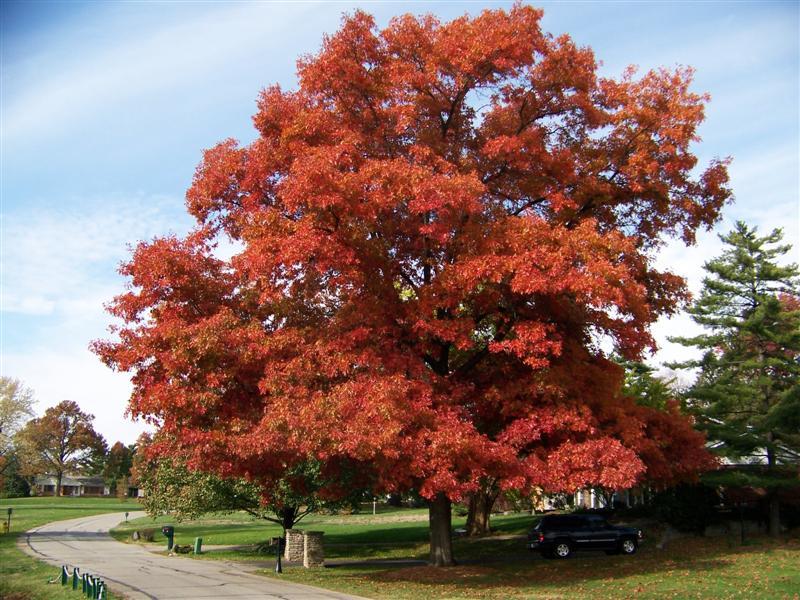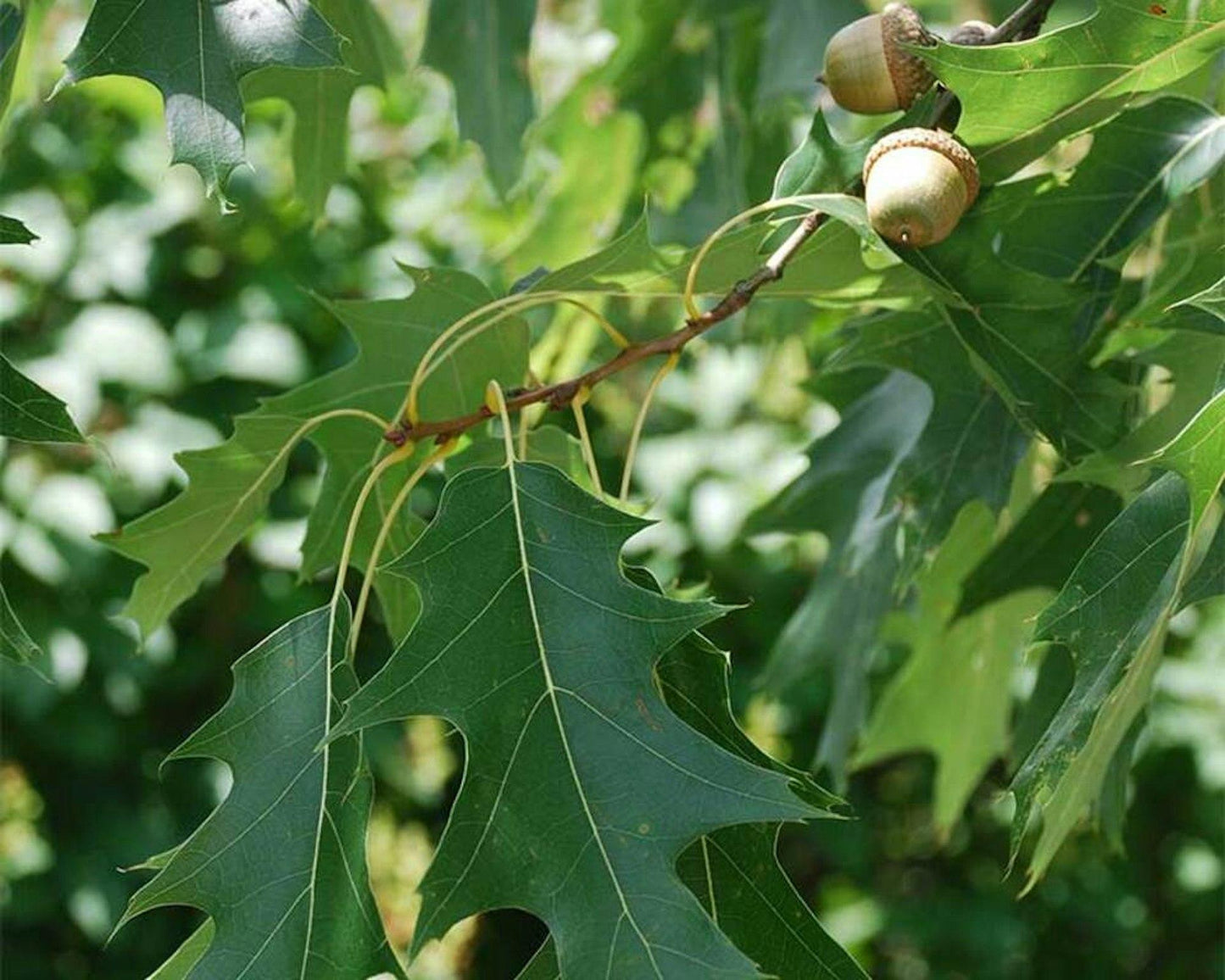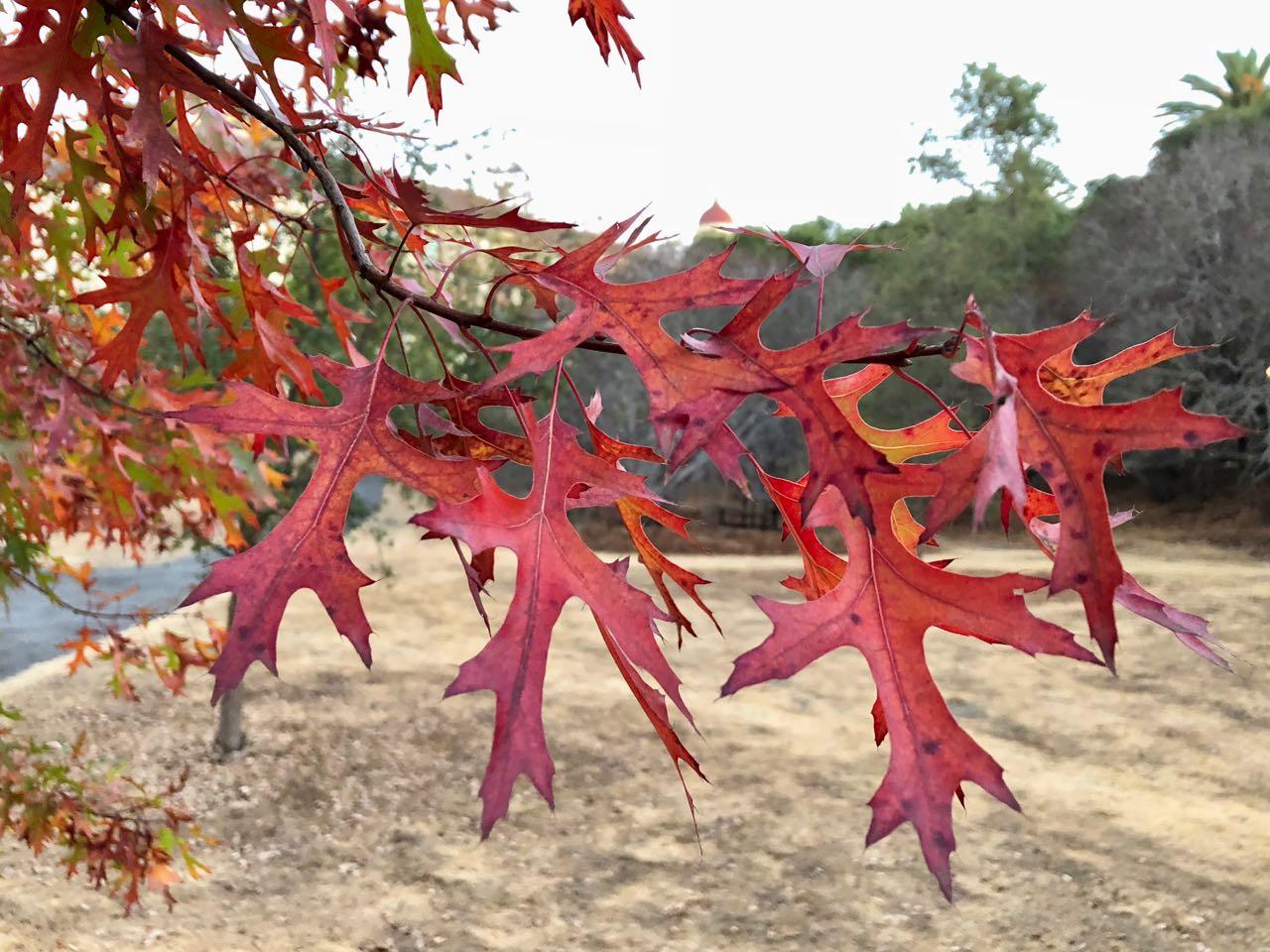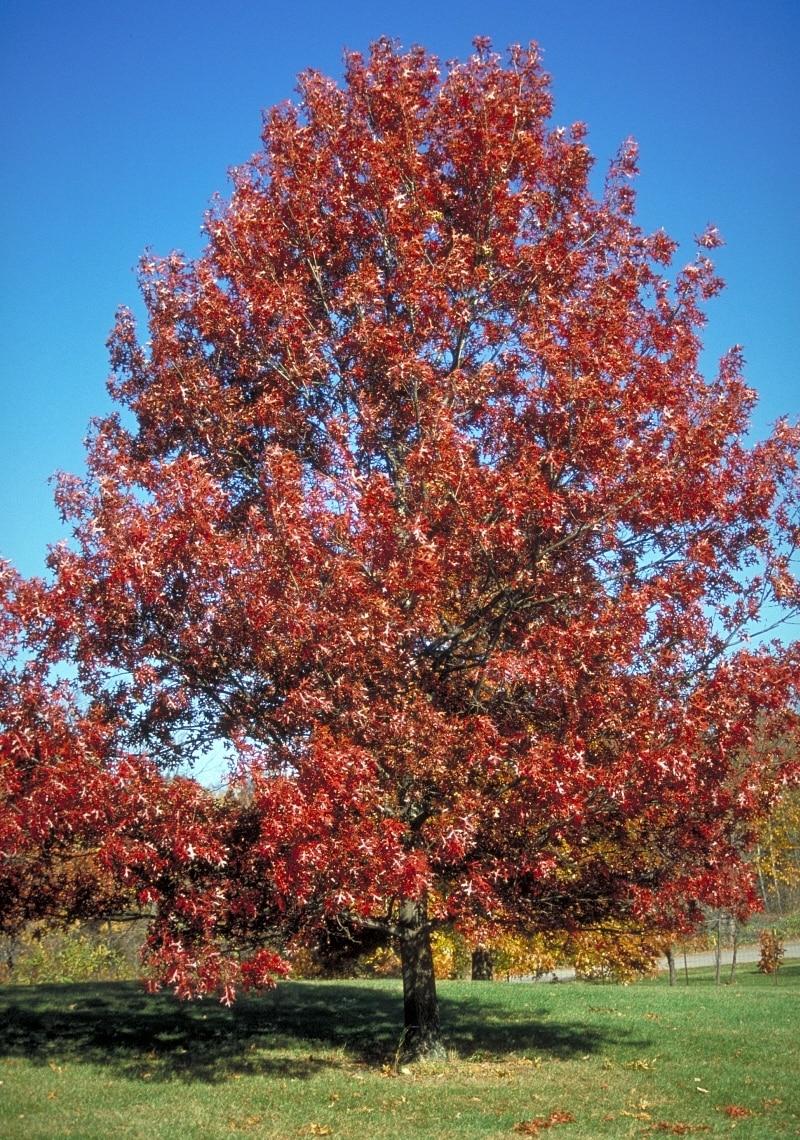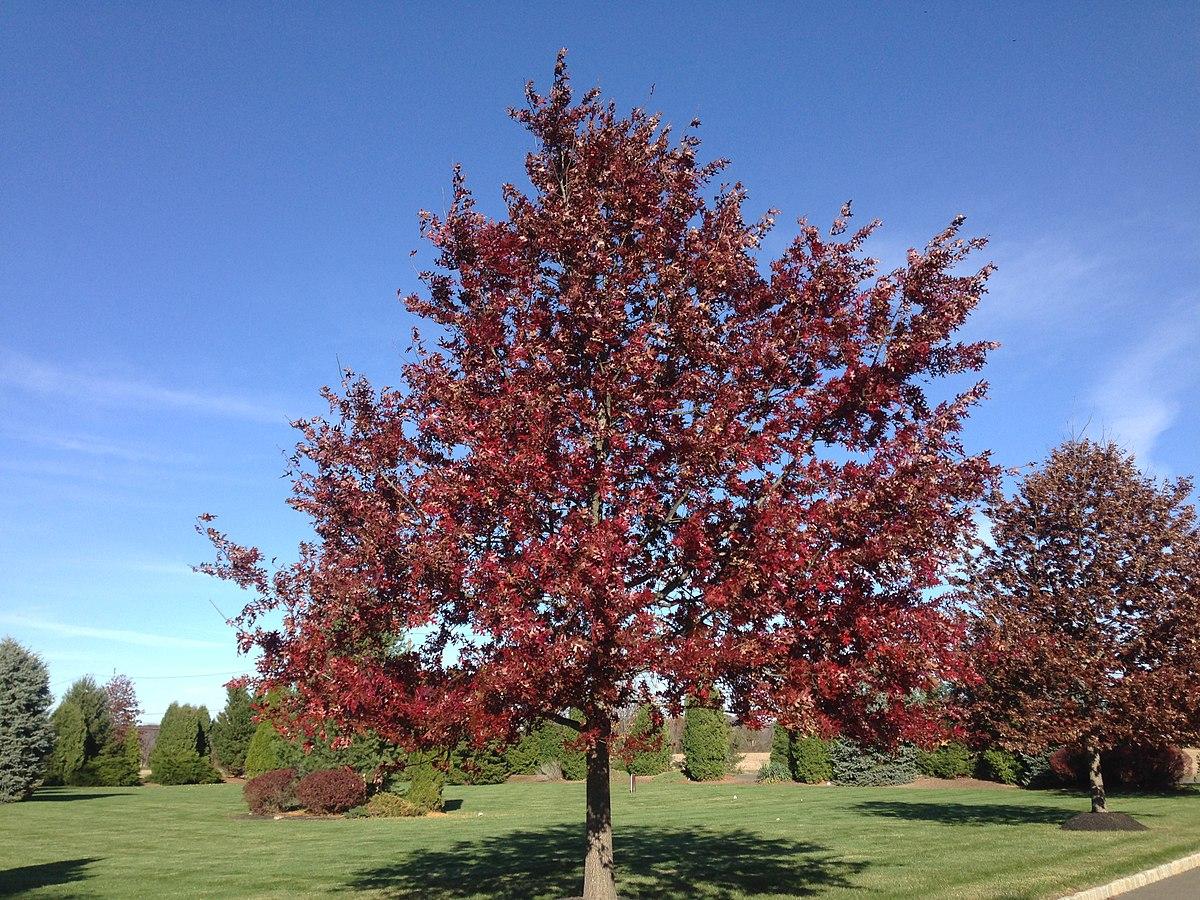1
/
of
20
RedCrocus Scarlet Oak Quercus coccinea-Beautiful fall foliage tree 3-3.5" cal B&B
RedCrocus Scarlet Oak Quercus coccinea-Beautiful fall foliage tree 3-3.5" cal B&B
Regular price
$2,080.00 USD
Regular price
$2,704.00 USD
Sale price
$2,080.00 USD
Unit price
/
per
Shipping calculated at checkout.
SKU:nts0506-redcrocus
Couldn't load pickup availability
Quercus coccinea
Description
The Scarlet Oak, known scientifically as Quercus coccinea, is a deciduous tree native to the eastern and central United States. It is renowned for its brilliant scarlet foliage in the fall, making it a popular ornamental tree. The tree typically grows to a height of 60 to 80 feet with a spread of 40 to 50 feet, featuring a rounded, open crown.
Suggested Uses
Scarlet Oak is ideal for use in large landscapes, parks, and as a street tree. Its vibrant fall color makes it a standout specimen tree in gardens and arboretums. It can also be used for shade and as a habitat for wildlife.
Plant Details
-
 Botanical Name: Quercus coccinea
Botanical Name: Quercus coccinea -
 Common Name: Scarlet Oak
Common Name: Scarlet Oak -
 Size & Growth: 60-80 ft tall, 40-50 ft spread
Size & Growth: 60-80 ft tall, 40-50 ft spread -
 Hardiness Zones: 4-9
Hardiness Zones: 4-9 -
 Foliage Type: Deciduous
Foliage Type: Deciduous -
 Bloom Time: Spring
Bloom Time: Spring -
 Growth Rate: Moderate
Growth Rate: Moderate -
 Light Requirements: Full sun
Light Requirements: Full sun -
 Attracts Pollinators: Yes
Attracts Pollinators: Yes -
 Indoor Friendly: No
Indoor Friendly: No -
 Container Friendly: No
Container Friendly: No -
 Deer Resistant: Yes
Deer Resistant: Yes -
 Pet Warning: Non-toxic
Pet Warning: Non-toxic -
 Fragrant: No
Fragrant: No -
 Cut Flower: No
Cut Flower: No -
 Grows Well With: Other oak species, maples
Grows Well With: Other oak species, maples
Care Tips
-
 Planting Instructions: Plant in spring or fall in well-drained soil
Planting Instructions: Plant in spring or fall in well-drained soil -
 Soil Moisture: Moderate, well-drained
Soil Moisture: Moderate, well-drained -
 Soil Type: Prefers sandy, loamy soils
Soil Type: Prefers sandy, loamy soils -
 Humidity: Tolerates a range of humidity levels
Humidity: Tolerates a range of humidity levels -
 Pruning Instructions: Prune in late winter to early spring
Pruning Instructions: Prune in late winter to early spring -
 Winter Care: Mulch to protect roots in colder zones
Winter Care: Mulch to protect roots in colder zones -
 Planting Depth: Same depth as nursery container
Planting Depth: Same depth as nursery container -
 Fertilization: Fertilize in early spring with a balanced fertilizer
Fertilization: Fertilize in early spring with a balanced fertilizer -
 Special Care: Ensure adequate water during dry spells
Special Care: Ensure adequate water during dry spells
Share


